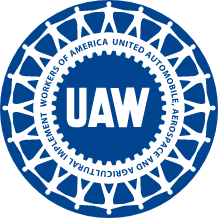The UAW has been a leader in the struggle to secure economic and social justice for all people and has been actively involved in every major civil rights legislative battle since the 1950s, including the Voting Rights Act of 1965.
The Voting Rights Act (VRA) banned racial discrimination by the federal, state and local governments after a century of deliberate and violent attempts to deny voting rights to African Americans, Latinos, and any group deemed as “non-white” by those in power. The VRA is often held up as the most effective civil rights law ever enacted and is widely regarded as giving millions of U.S. citizens a voice in democracy and diversifying legislative bodies at all levels of U.S. government.
In 2013, the United States Supreme Court, led by Chief Justice Roberts, ruled by a 5-4 decision in Shelby County v. Holder, that crucial parts of the Voting Rights Act were no longer valid.
Claims that vote by mail will lead to increased fraud and contaminate the election are false. Extensive research reveals that mail ballot fraud is very rare (as with other forms of voting), voter impersonation is virtually nonexistent, and many instances of alleged fraud are, in fact, mistakes by voters or administrators. Despite a dramatic increase in mail voting over time, fraud rates remain infinitesimally small. None of the five states (Colorado, Hawaii, Oregon, Utah and Washington) that hold their elections primarily by mail has had any voter fraud scandals since making that change. States that use vote-by-mail have encountered essentially zero fraud. Oregon, the pioneer in this area, has sent out more than 100 million mail-in ballots since 2000, and has documented only about a dozen cases of proven fraud. 0.00001 percent of all votes cast.
